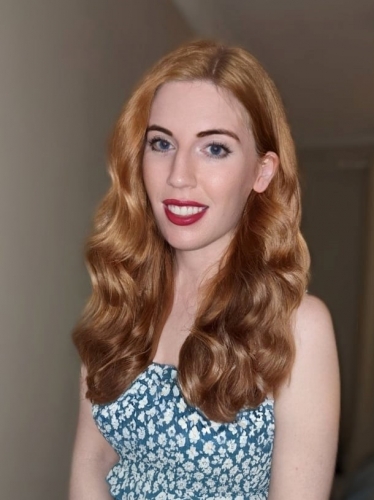A specialist bowel cancer nurse has revealed that empathy and listening are at the heart of the long-term relationships she builds with patients. And that is what helps her patietns feel less lonely on their journey and more comfortable in talking about their fears for the future, and the 'elephants in the room'.
“Considering bowel cancer is so prevalent in Australia, I think it’s important to remember that it’s not about being a nurse who is treating the actual cancer. It's learning to treat the person.”
Subscribe for FREE to the HealthTimes magazine
“For me, it is never about the cancer. It is how you help the individual get through each hurdle in the best possible way they can with the support they need”, said Tammy Howell, who works as a specialist bowel cancer nurse with Bowel Cancer Australia.
“Bowel cancer doesn't discriminate. You might have someone in their 20s or 30s, new parents, people who are just semi-retired, mid-40-year-olds, people who are retired – there are so many walks of life, and whether they're rich, they're poor, it does not discriminate whatsoever.”
“I find that as long as you have empathy, and you enjoy working with people, and you genuinely care for people, they're the skills you need", Mr Howell told
HealthTimes.
“And listening. To be able to listen to a person as to what their needs are, and to try and help find what their next challenge might be, and give them some real practical tips to overcome that”
Ms Howell remembers every patient who has been under her care, and they are memories she always carries with her.
“I certainly never forget patients with whom I've worked. There is something about nurses where we can retain the most unusual things or memories of a person.”
“I've had a patient call me three years later since their last call, and their story quickly comes flooding back, and we continue on like it's only yesterday.”
“ I cannot tell you how many times a patient has said to me that it is so nice to speak to someone who understands, and that I'm not trying to explain everything to them from scratch.”
“With long-term patients, it's the trust that you build. Often the fear for families is talking about the elephant in the room, especially if we're talking about palliation or end-stage cancer.”
“The long-term relationship that I've had with patients has allowed them to say, ‘what does it look like when I'm dying, and how do I know I'm getting closer to the end, and what do I need to prepare?’”
“It's things like discussing wills, what way they can leave memories for their children - depending on the age of the person.”
“They're topics of conversation that so many people find hard to have with their family or loved ones, because they don't want to make their family sad.”
“But they need to have these discussions with someone. So, that's where I found the relationship over time, it builds that trust where the person can say, ‘look, can I ask you a question?’”
For Ms Howell, caring for others has been nearly a lifelong calling.
“As a five-year-old, I used to hold our vet's tray when they used to come and look after our horses and things like that when they were giving them needles and gelding them, and all those things.”
“So, I enjoyed the aspect of being a little helper at that age, but it was when I was 16 that I actually knew I wanted to be a nurse. My nan was in hospital having a triple bypass, and I was just so impressed by the nurses who were looking after her that I thought, wow, I want to be just like that.”
“I think it was not only the compassion that the nurses had but just the amount of knowledge they had, but also they genuinely cared, and I think that really just watching how they looked after my nan, I thought, wow, I could do this job.”
She said that there are obviously challenging parts to her work too – but they also serve as reminders of why specialist cancer nursing is so vital.
“The most challenging part is hearing stories from young people, and when I say young, we're talking more under 40 or under 50 years of age.”
“When they've gone to their doctor with symptoms, and they were not taken seriously, and then things weren't managed appropriately, and then, later on, they've gone back, and they're diagnosed with late-stage bowel cancer.”
“That to me, is heartbreaking, and I think it does fuel the fire in my belly to try and spread the word.”
“The more people who talk about this and the more people who understand that bowel cancer can sometimes have no symptoms whatsoever, the more people will just go and get checked. It's as simple as having a checkup and screening that could make all the difference.
“And if you don't trust what your first GP has recommended, then you’re well within their rights to go for a second opinion”, Ms Howell said.













